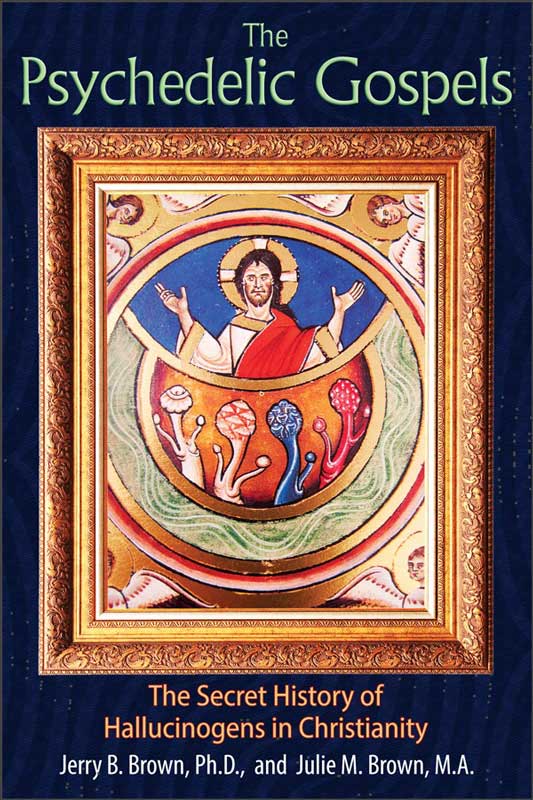This guest post by Aeden Smith explores Ibogaine treatment as a psychedelic approach to American’s growing opioid epidemic.
Finding freedom from heroin or opiate addiction can be an overwhelming task for many addicts and their families. With so many to choose from, and staggeringly low success rates of many mainstream treatments, many are turning to alternative approaches for overcoming their addiction.
One of these alternative methods is called Ibogaine treatment—utilizing a psychedelic drug from Africa that has shown very promising results in the treatment of heroin and opiate addiction.
Psychedelics as medical treatment
Ibogaine is by no means the only psychedelic substance that has been used for medicinal purposes. Such compounds have served in various treatment capacities for thousands of years by many cultures around the globe.
In more recent history, psychedelics have played a role in addressing psychological disorders and chemical dependence. For example, scientific studies on the effectiveness of LSD in treating these types of conditions began back in the 1930s.
This experimentation peaked in the 1960s when these psychedelics compounds were made illegal, effectively shutting down all research into their medical use.
The 1990s saw more changes in legislation, again opening up the possibility of legal scientific study. Some recent explorations include trials for MDMA, more commonly known as ecstasy, as a treatment for PTSD, depression, and anxiety.
Johns Hopkins Medicine also ran a study on the effects of psilocybin, or hallucinogenic mushrooms, as a treatment for those addicted to smoking tobacco.
What is Ibogaine?
Ibogaine is a holistic, plant-based psychedelic that is used in treating opiate and heroin addiction. It is extracted from the Tabernanthe Iboga root bark. This plant has been used by the Bwiti religion in Africa for centuries. Brewed as a tea, for them it plays a role in healings, Shamanic rituals, and rites of passage.
In the 1960s, Howard Lotsof, a 19-year-old heroin addict, was searching for a new type of psychoactive drug for his own recreational use. A chemist that Lotsof knew personally presented him with Ibogaine. After an intense psychedelic trip, Lotsof was exhausted and decided never to use the drug again.
Ibogaine, however, had already begun to positively impact Lotsof on a fundamental level. Within 72 hours of use, Lotsof realized that he no longer had any craving for heroin, and he suffered no narcotic withdrawal.
Ibogaine not only addressed his physical addiction, but also helped to work with him on a profound psychological level. During a walk outside, he had an epiphany. He described it this way:
“I looked at this large tree in front of me and I looked at the clouds in the sky and I realized for the first time in my life I wasn’t frightened and perceived that my whole life had been full of fear.”
Lotsof wanted to further explore the power of Ibogaine, so he administered the drug to a few of his heroin-addicted friends. They found the same results he had, a withdrawal-free release from their addictions.
Understandably, Lotsof spent his life studying Ibogaine and its medicinal properties. He founded many different Ibogaine clinics to bring the healing properties of Ibogaine to others. But by this time, Ibogaine was outlawed in the USA, and Losof was forced to study the effects of Ibogaine in various parts of Europe.
Why is Ibogaine so effective physically?
By bonding to the brain’s opiate receptors, Ibogaine helps to reset the pleasure pathways—also referred to as the brain’s reward system. These pathways are drastically altered as drug use floods the brain with chemicals, resulting in addiction.
Like a reset button of sorts, Ibogaine restores neurons to their pre-addicted state. This allows the natural systems of the brain to regain proper functionality. Taking the brain back to its “factory settings” allows the naturally produced serotonin and dopamine to properly function in the brain without the withdrawal symptoms normally experienced.
This process takes the Ibogaine only a few hours to accomplish, and after the Ibogaine experience is over, addicts have overcome a majority, if not all, of their withdrawal symptoms.
Because of the way that Ibogaine impacts the reward system of the brain, it can be effective for more than just opiate and heroin addiction. Though the effects are a bit less predictable, Ibogaine can also help those suffering from addictions to alcohol, methamphetamines, crack, and cocaine. It can even help interrupt emotional patterns associated with depression, anxiety, and PTSD.
Treating the underlying trauma
On a psychological level, Ibogaine’s psychoactive properties often help addicts face the “hurt” associated with addiction. There is a significant causative link between trauma and addiction. If the underlying trauma and negative life experience isn’t effectively addressed, efforts at rehabilitation often fail—since they aren’t addressing the real problem.
As a psychedelic, Ibogaine merges the conscious and subconscious mind, bringing the addict face to face with past traumas that they may or may not have acknowledged. This enables them to process the trauma in a meaningful way, more fully accept their past, and find the peace necessary to move into their future with a healthier mindset.
Because trauma is often the original cause of the addiction, such a breakthrough is often essential to finding permanent freedom. Ibogaine is intended to bring addicts to a more open acceptance of their past—including hurtful decisions they themselves have made.
Is Ibogaine the right choice?
No one treatment is right for everyone, and Ibogaine is no different. Those with certain pre-existing health conditions, such as heart or liver problems, are not healthy enough for Ibogaine treatment.
Since Ibogaine is still illegal in the United States, addicts choosing this treatment often seek out Ibogaine clinics in neighboring countries, such as Mexico or Canada.
Although no addiction treatment will be successful unless the addict takes important steps to change their lives—such as breaking free from toxic relationships and adjusting patterns of thought and behavior—Ibogaine provides powerful relief from the physical and psychological bonds of chemical addiction.
Always speak to a medical professional before choosing drastic treatment methods such as Ibogaine.
Freedom from addiction is possible. Finding the right treatment that works for you or your loved one can be difficult, but it is possible. Everyone deserves a chance at a happy and sober life.
For further information, contact Aeden Smith at: [email protected]







